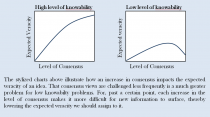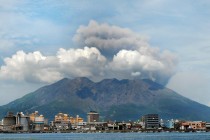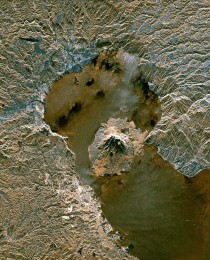----------------
In our view, the fact that so many scientists agree so closely about the [causes of the] earth’s warming is, itself, evidence of a lack of evidence for [human caused] global warming. - D. Ryan Brumberg and Matthew Brumberg
The latest nonsensus on consensus from Cook, Oreskes et al. has been published [link]. The title ‘Consensus on consensus’ pretty much sums up what the paper is about - they claim that the combined weight of all the climate consensus papers that finds >90% agreement by scientists should convince us that ‘97%’ is robust.
I have criticized the idea of the 97% consensus many times [link], and I will leave it to others to critique this latest paper.
In this post I focus on the paradox of the climate consensus, as articulated in a blog post by D. Ryan Brumberg and Matthew Brumberg entitled The Paradox of Consensus. Excerpts:
Consensus, in and of itself, is not necessarily a bad thing. The more easily testable and verifiable a theory, the less debate we would expect. But as a question becomes more complex and less testable, we would expect an increasing level of disagreement and a lessening of the consensus. On such topics, independent minds can - and should - differ.
We can use a simple formula to express how an idea’s popularity correlates with its verifiability. Let us introduce the K/C ratio - the ratio of “knowability,” a broad term loosely encapsulating how possible it is to reduce uncertainty about an idea’s correctness, to “consensus,” a measure of the idea’s popularity and general acceptance. Topics that are easily knowable (K ~ 1) should have a high degree of consensus (C ~ 1), whereas those that are impossible to verify (K ~ 0) should have a low degree of consensus (C ~ 0). When the ratio deviates too far from the perfect ratio of 1, either from too much consensus or too little, there is a mispricing of knowledge. Indeed, in cases of extreme deviations from the perfect ratio, additional support for a concept with such a lopsided K/C ratio increasingly subtracts from its potential veracity. This occurs because ideas exist not simply at a single temporal point, but rather evolve over the sweep of time. At the upper reaches of consensus, there is less updating of views to account for new information - so much so that supporters of the status quo tend to suppress new facts and hypothesis. Government agencies deny funding to ‘sham’ scientists, tenure boards dissuade young researchers from pursuing ‘the wrong’ track, and the establishment quashes ‘heretical’ ideas. Too high consensus (skewed K/C ratio) inhibits the ability of an idea to evolve towards truth.

While not always clear why the K/C ratio can become highly skewed, one interpretation is that more than just the search for knowledge is at play.
The scope of agreement achieved by the world’s climate scientists is breathtaking. To first approximation, around 97% agree that human activity, particularly carbon dioxide emissions, causes global warming. So many great minds cannot possibly be wrong, right?
Yet something nags us about this self-congratulatory consensus. Our intuition is that this narrow distribution of opinions yields a knowability to consensus ratio far removed from the perfect ratio of 1. To reach their conclusions, climate scientists have to (a) uncover the (historical) drivers of climate, (b) project the future path of these inputs and others that may arise, and (c) predict how recursive feedback loops interact over multi-decadal time horizons, all without being able to test their hypotheses against reality.
We would, therefore, expect this limit on empirical verifiability to birth widely divergent views on the path, causes, and consequences of earth’s future climate. In other arenas, only after a theory has been empirically verified has the scientific community coalesced around it. Even then, scientists continue to subject such theories to rigorous testing and debate.
Yet the expectation of a rich debate among scientists about climate change does not reconcile easily with the widely endorsed shibboleth that human activity will warm the globe dramatically and dangerously over the next one hundred years. Any discussion that doubts the fundamental premises of climate change is dismissed by the mainstream media and climate scientists as pseudo-science conducted by quacks or ideologues.
In our view, the fact that so many scientists agree so closely about the earth’s warming is, itself, evidence of a lack of evidence for global warming. Does this mean that climate change is not happening? Not necessarily. But it does mean that we should be wary of the meretricious arguments mustered in its defense.
JC reflections
This essay provides an important insight in the K/C ratio - the ratio of knowability to consensus.
There is genuine scientific consensus on the following points:
- global temperatures have increased overall since 1880
- humans are contributing to a rise in atmospheric CO2 concentrations
- CO2 emits and absorbs infrared radiation
For the most consequential issues, there remains considerable debate:
- whether the warming since 1950 has been dominated by human causes
- how much the planet will warm in the 21st century
- whether warming is ‘dangerous’
- whether radically reducing CO2 emissions will improve the climate and human well being
Leveraged by the consensus on the three points above that are not disputed, the climate ‘consensus’ is being sold as applying to all of the above, even the issues for which there remains considerable debate.
For past a certain point, each increase in the level of consensus makes it more difficult for new information to surface, thereby lowering the veracity we should assign to it.
The skewed scientific ‘consensus’ does indeed act to reinforce itself, through a range of professional incentives: ease of publishing results, particularly in high impact journals; success in funding; recognition from peers in terms of awards, promotions, etc.; media attention and publicity for research; appeal of the simplistic narrative that climate science can ‘save the world’; and a seat at the big policy tables.
The net result of this skewed ‘consensus’ is that inadequate attention is being paid to natural climate variability, and too many people, including scientists, assume that CO2 is a giant control knob that, if reduced, can eliminate bad weather, sea level rise, etc.
While not always clear why the K/C ratio can become highly skewed, one interpretation is that more than just the search for knowledge is at play.
Apart from the professional incentives described above, there are a range of political drivers that incentivize the consensus, including broad environmentalism, anti-fossil fuel sentiments, anti-capitalism sentiments, and a desire for world government that transcends national policies.
And finally, there is the seductiveness of identifying a simple cause of all of society’s problems, and a simple solution.
I think the Brumbergs are correct to conclude:
In our view, the fact that so many scientists agree so closely about the [causes of the] earth’s warming is, itself, evidence of a lack of evidence for [human caused] global warming.
Eliciting the opinion of experts is worthwhile, but it is important to clearly delineate which ‘experts’ should count:
There must be a sufficient number of others who did arrive (and continue to arrive) at the same conclusion through independent verification and testing.
A substantial majority of the individuals responding to the ‘expert’ surveys have not contributed to the primary literature on detection and attribution and have not conducted an independent assessment of this issue. Instead they have arrived at their conclusion based on the second-order evidence that a ‘consensus’ exists.
This consensus that has been manufactured by the IPCC in response to perceived desires of policy makers “makes it more difficult for new information to surface, thereby lowering the veracity we should assign to it.”
So, what have Cook, Oreskes et al. accomplished with their new paper? They are further reinforcing a very skewed consensus that is not defensible based upon our knowledge base.

Kagoshima cityscape against the background of Sakurajima volcano. Japan, East Asia, 2009. By Mstyslav Chernov/Unframe/www.unframe.com (Own work) [CC BY-SA 3.0], via Wikimedia Commons
Japan has heightened monitoring on the Island of Kyushu, in the wake of a 6.4 Earthquake. Kyushu is a highly volcanic region which includes a the Aira Caldera and Mount Aso, VEI-7 volcanoes. The last major VEI-7 eruption, the eruption of Mount Tambora, is associated with the year without a Summer, a period of widespread famine and crop failure which occurred in 1816.
Ranker notes: “One of the most recently troubling calderas in the world is the 150-square-mile Aira caldera in southern Japan, on the edge of which sits the city of Kagoshima. 22,000 years ago 14 cubic miles of material burped out of the ground and formed the Aira caldera, which is now largely Kagoshima Bay. That is equal to about 50 Mount St. Helens eruptions. The Sakura-jima volcano, which forms part of the Aira caldera, has been active on and off for the past century and still causes earthquakes today, indicating that the caldera itself is far from sleeping.”

Read more.
If, and this is a big if, this situation develops into a Tambora scale explosive eruption, the results could be devastating, both for Japan, and potentially for the entire Northern Hemisphere. Modern transportation may mitigate some of the effects, by allowing food from the Southern Hemisphere to be supplied to regions experiencing crop failures. But the resulting spike in food prices would be likely to cause severe hardship for the world’s poor.
Meanwhile our politicians pointlessly fritter away their time and our money, conducting climate witch hunts, and plotting to bankrupt affordable energy suppliers.
Gentlemen:
I believe you are both honest brokers and you print your Sun editorials based on the information you have available and have researched at the time of the writing. As you know, I deal in facts and the facts I rely on concerning the subject of Man Made Climate Change/Global Warming conflicts 100% with today’s Our View editorial entitled “Locals Aim To Slow Down Climate Change.”
The three legged stool constructed by the EPA in 2009 to prove its “Endangerment Finding”, which declared man made Greenhouse Gases Emissions into Earth’s atmosphere (primarily CO2) endanger public health and endanger public welfare; and such emissions are the cause of Global Warming/Climate Change, have been scientifically proven to be false on all counts. This is the false theory, which the members of the Charlotte based Citizens’ Climate Lobby/Our View seem to totally espouse, which is nothing but a scare tactic being utilized by EPA in its prime objective of substantially reducing the global use of fossil fuels to power the globe. This scare tactic is politically, not scientifically based. The EPA relies on the theoretical information distributed by the Intergovernmental Panel On Climate Change ("IPCC") to justify creation of the regulations the EPA adopts.
Ottmar Edenhoffer, Co-Chair of IPCC’s Working Group III Committee has stated “Climate policy has almost nothing to do anymore with environmental protection. The next world climate summit in Cancun is actually an economy summit during which the distribution of the world’s resources will be negotiated.” Therefore, Global Warming/Climate Change in the IPCC’s opinion is about destruction of world capitalism and the re-distribution of wealth from the “have” countries to the “have not” countries. It is about achieving the goals of U.N.’s Agenda 21, which is the eventual establishment of a one world government.
So I contend the environmentalists and media, when confronted with contrary evidence/fact, but still buy into IPCC’s and EPA’s Global Warming/Climate change lies, are doing a terrible disservice to citizens by distorting the truth.
The attachment to this e–mail contains an Amicus Brief recently submitted to the D.C. Circuit Court associated with plaintiffs’ petition to the court to void the EPA’s proposed carbon pollution guidelines for existing power plants and emission standards for modified and reconstructed power plants. The Amicus Brief is a scientific study submitted independently to the Court by 13 scientists, all having the required diversified excellent academic experience/scientific expertise to perform such a study. The Brief represents the results of their scientific investigations, which via several sourced empirical data sources generated by internationally based recognized/credible organizations, proves that each of the three EPA’s pillars of evidence (?) which was used to prove/justify its Endangerment Finding, (leading to EPA’s Man Made Global Warming/Climate Change assertions) is patently false on their face and must be rejected by the court.
This study is the first of its kind and, if both of you gentlemen are truly honest brokers, you will print out the document and read it very thoroughly for the scientific based conclusions reached by these 13 recognized scientists totally negates the Citizens’ Climate Lobby’s positions, which in the editorial you discussed extensively and seemed to agree with. Since I do not know how to contact Ms. Knolenburg or Mr. Keller, leaders of the local Chapter of CCL, maybe you could forward this e-mail to them.
Additionally, you state, as alluding that your statement is unchallengeable, that an “overwhelmingly number of climate scientists”, ...are warning of the dire things that are heading our way due to Climate Change. As a rebuttal to this false statement, I refer you to a publication entitled “Why Scientists Disagree About Global Warming"---a Nongovernmental International Panel on Climate Change sponsored book (Phone 312/377-4000 or http://www.heartland.org) which which, via documented factual information and the conclusions of many independent studies, clearly illustrates the millions of top global climate scientists are no where near reaching consensus regarding whether alarming Climate Change/Global Warming exits; and for those who believe it exists there is no consensus among that group as to why it exists.
Gentlemen, I believe a responsible media source would advise their readership that contrary scientifically based evidence exists challenging the prognostications of environmentalists regarding the direness of Man Made Global Warming/Climate Change, and that evidence (the Brief and the name of the book citing no scientific consensus exists) would be posted on the media’s website.
I hope you decide to do the right thing with the new documentary evidence I have provided you.
Bill Bigelow
-----------
ICECAP NOTE:
We with a large team of scientists and economists and lawyers recently published a detailed scientific brief to the courts battling bad science. It was the 5th such brief the last 5 years.


